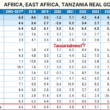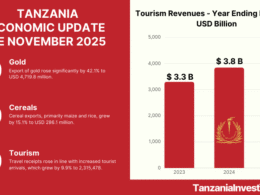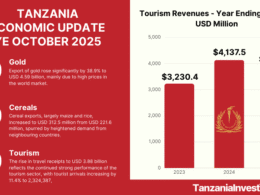According to a recent report in The Guardian, the Tanzania Tourism Board (TTB) has made plans to employ more officers in the tourism sector in order to support and strengthen the importance of cultural tourism within the country.
In an interview with The Guardian, the Managing Director of the TTB, Peter Mwengo, said that the TTB has approached the promotion of the tourism sector through the use of packages, including cultural tourism.
Cultural tourism refers to the method of tourism in which tourists are able to participate in activities such as visiting various heritage sites; participate in traditional cultural activities such as carving, dancing, singing, drama, debates, story-telling and the consumption of traditional foods.
All of these activities must be done in a way that will not disrupt the natural environment and will, instead, promote the conservation of these products for future visitors to appreciate.
According to Mr. Mwengo, at the time that the TTB was started, only a few cities in Tanzania were promoted as cultural tourism destinations.
However, since 1996, Tanzania has expanded the cities of cultural tourism from three to 24, thus creating the need to welcome new officers who will be trained to further advance the progression of cultural tourism.
“Following the increase of cultural tourism cites,” said Mr. Mwengo, “we’re employing more officers with a view to strengthen it.”
Mr. Mwengo’s statement follows criticism from tourism experts that cultural tourism in Tanzania should receive more attention and emphasis based on the significant role it plays in the reduction of poverty within the country.
Based on a study that was conducted in South Africa, more than 40 percent of the tourists who were interviewed said that their reasons for visiting the country were partially based on the cultural activities and events that were available.
According to Mr. Mwengo, tourism provides opportunities to increase the economic power of individuals at the lower levels of the economic scale because the incoming visitors to the country are able to meet directly with the citizens.
In this regard, cultural tourism differs from other forms of tourism in that the receipts from tourists goes directly to the people rather than being filtered down through the government treasuries.
Mr. Mwengo went on to say that because of the vast number of various tribes and traditional practices, there was a high potential for cultural tourism to grow and develop within the country if it was properly reinforced and nourished in order to promote additional foreign exchange receipts.
The Tanzania government first began promoting tourism in the country nearly 10 years ago.
Since then, the GDP of the tourism sector has grown to approximately 18 per cent and its contribution to the overall foreign currency of the country is now nearly 30 percent.










